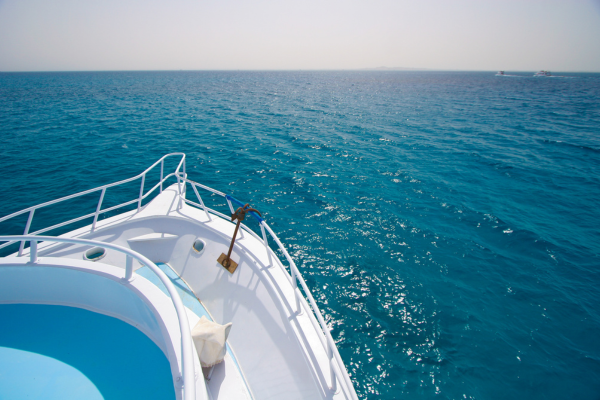Dos and Don'ts of VAT Compliance for Yachts and Aircraft

As the world reacts to the situation with regard to Covid-19 and with the imminent end of the Brexit transitional period, a ‘health check’ of your yacht and aircraft VAT registration is recommended.
The multifaceted world of VAT can easily make owning and operating an aircraft and/or yacht very costly. There are, however, a few steps you can take to be sure that your asset is protected, and you don’t overpay or underpay where VAT is concerned. In this article, we outline some of the dos and don’ts relating to this complex subject matter.
DO
- Ahead of the expiry of the Brexit transitional period ending on 31 December 2020, if the EU free circulation status of your yacht or aircraft is associated to a UK/IOM VAT registration, consider moving the VAT registration to another EU Member State
- Consider VAT registration: if you are trading (no matter how small) in another EU Member State, VAT registration is mandatory. This may involve the appointment of a fiscal representative
- Always carry out research or seek advice when encountering a new business scenario
- Ensure that whoever completes your VAT declarations has ALL your business records for a tax period in a timely manner to allow the VAT declaration to be submitted on time
- Always ensure that your VAT declarations (and payments if required) are submitted before the date they are due. Remember the due date for payment means the payment must be received by that date in the bank account of the tax authority
- Where you intend to operate a commercial yacht or aircraft, seek advice before the purchase of your yacht or aircraft to ensure that it is placed in the most VAT efficient structure
- Seek advice before any major repairs or refurbishments to ensure it is arranged in the most VAT efficient manner
- Consult or seek advice ahead of any asset movements including the purchase and/or disposal of your asset
- Plan ahead with regard to future movements of your asset, thereby ensuring that the required documentation is in place and that VAT regulations in the EU Member State are being adhered to
- Keep appropriate VAT documents aboard the yacht or aircraft to enable foreign customs checks to be cleared rapidly
- If your business activities/intentions change, keep your VAT advisors fully informed so they can assist and perhaps liaise with the relevant customs authority
- As many EU ports and airports are currently closed due to Covid-19, to avoid unwanted VAT issues in a Member State, consider placing your yacht or aircraft in a Customs Warehouse regime. These are virtual warehouses and in the UK or Isle of Man, Equiom can assist you with this
- As the end of the Brexit transitional period comes ever closer, keep informed of the latest developments and announcements that may affect your current structure; take heed of these developments and discuss these with your VAT advisors
- Ensure that all invoices received from suppliers are correctly invoiced to the VAT registered entity. VAT charged on wrongly addressed invoices cannot be recovered
DON’T
- Assume that no actions are needed to protect the EU free circulation status of your commercial yacht or aircraft at the expiry of the Brexit transitional period on 31 December 2020
- Expose your yacht or aircraft to a potential VAT assessment by an EU Member State once the Brexit transitional period has expired after deeming that your asset should be imported there
- Automatically accept that your supplier must charge you VAT on their supply of either goods or services. VAT charged to you incorrectly cannot be reclaimed
- Use the yacht or aircraft for private purposes if it is VAT registered. VAT registrations are only appropriate where there are business activities and assets operated must be demonstratively used for business purposes
- Rely on advice from persons who do not have a specialist knowledge of VAT
- Assume that countries outside the EU do not operate a VAT system. Countries such as the United Arab Emirates now operate VAT-based systems for taxation of goods and services and VAT registration there may also be necessary
- Assume that a VAT scheme you may hear about, is the most appropriate to you and your business. A specialist advisor would be best placed to give you bespoke advice for your circumstances
If you own a yacht or aircraft or are thinking of purchasing one for commercial purposes, contact the Equiom Tax Services team for more information about how to prepare for the VAT liabilities that may arise, or for assistance with any other VAT enquiries, get in touch with our team.
This article has been carefully prepared, but it has been written in general terms and should be seen as broad guidance only. The article cannot be relied upon to cover specific situations and you should not act, or refrain from acting, upon the information contained therein without obtaining specific professional advice. Please contact Equiom to discuss these matters in the context of your particular circumstance. Equiom Group, its partners, employees and agents do not accept or assume any liability or duty of care for any loss arising from any action taken or not taken by anyone in reliance on the information in this article or for any decision based on it.

Get in touch
If you have any questions, or would like to learn more about taking the next steps with Equiom, please select one of the options below.
Choose a location and contact the team Use our website form
